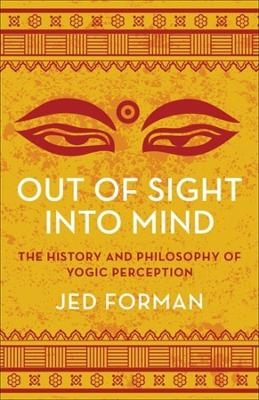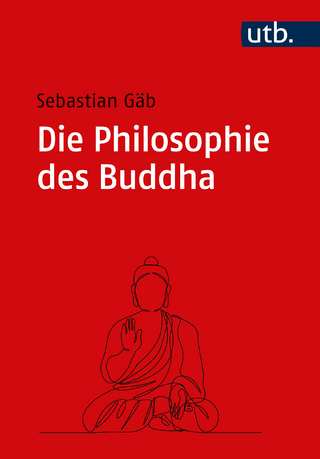
Out of Sight, Into Mind
The History and Philosophy of Yogic Perception
Seiten
2024
Columbia University Press (Verlag)
978-0-231-21553-4 (ISBN)
Columbia University Press (Verlag)
978-0-231-21553-4 (ISBN)
Most Indian and Tibetan religious traditions have some theory of yogic perception—a profound type of sentience afforded by meditative practice. And most consider it the bedrock of their religious authority, the primary means by which one gains spiritual insight. Disagreements about what yogis perceive abound, however, spanning many philosophical topics, including epistemology, ontology, phenomenology, and language.
Out of Sight, Into Mind is a groundbreaking exploration of debates over yogic perception, revealing their contemporary relevance as a catalyst for comparative philosophy. Jed Forman examines intellectual and philosophical developments over a millennium in India and Tibet, offering rich analyses of many previously untranslated texts. He traces divergences and confluences between thinkers within and across traditions, demonstrating that accounts of yogic perception shifted from theories based on vision to ones based on the mind. Drawing on this investigation, Forman calls for broadening philosophical discourse, arguing that subjects like yogic perception have often been deemed “religious” and thus neglected. He contends that these Indian and Tibetan debates hold important lessons for present-day topics such as hermeneutics and exegesis, the relationship between conception and perception, representationalism versus phenomenalism, and the limits of language. Shedding new light on the intellectual history of yogic perception, this book models how a comparative approach can yield novel philosophical insights.
Out of Sight, Into Mind is a groundbreaking exploration of debates over yogic perception, revealing their contemporary relevance as a catalyst for comparative philosophy. Jed Forman examines intellectual and philosophical developments over a millennium in India and Tibet, offering rich analyses of many previously untranslated texts. He traces divergences and confluences between thinkers within and across traditions, demonstrating that accounts of yogic perception shifted from theories based on vision to ones based on the mind. Drawing on this investigation, Forman calls for broadening philosophical discourse, arguing that subjects like yogic perception have often been deemed “religious” and thus neglected. He contends that these Indian and Tibetan debates hold important lessons for present-day topics such as hermeneutics and exegesis, the relationship between conception and perception, representationalism versus phenomenalism, and the limits of language. Shedding new light on the intellectual history of yogic perception, this book models how a comparative approach can yield novel philosophical insights.
Jed Forman is the Robert H. N. Ho Family Foundation Assistant Professor in Buddhist Studies at Simpson College. With the Yakherds collective of scholars, he is a coauthor of Knowing Illusion: Bringing a Tibetan Debate into Contemporary Discourse (2021).
Acknowledgments
Introduction
Part I: Hindu Traditions and Epistemology
1. Extramission, Remote Seeing, and Intuitions
2. The Epistemology of Authority and Testimony
Part II: Indian Buddhism and Phenomenology
3. Pragmatism and Coherentism
4. Omniphenomenology
Part III: Tibetan Buddhism and Language
5. Gelug Representationalism
6. Sakya Antirepresentationalism
Conclusion
Notes
References
Index
| Erscheinungsdatum | 23.10.2024 |
|---|---|
| Verlagsort | New York |
| Sprache | englisch |
| Maße | 152 x 229 mm |
| Themenwelt | Geisteswissenschaften ► Philosophie ► Östliche Philosophie |
| Geisteswissenschaften ► Religion / Theologie ► Buddhismus | |
| ISBN-10 | 0-231-21553-3 / 0231215533 |
| ISBN-13 | 978-0-231-21553-4 / 9780231215534 |
| Zustand | Neuware |
| Informationen gemäß Produktsicherheitsverordnung (GPSR) | |
| Haben Sie eine Frage zum Produkt? |
Mehr entdecken
aus dem Bereich
aus dem Bereich


